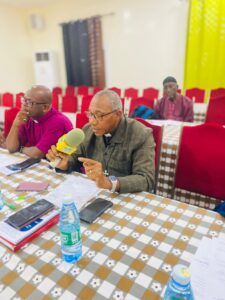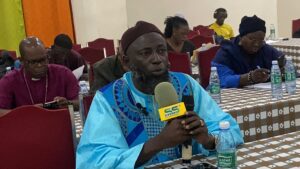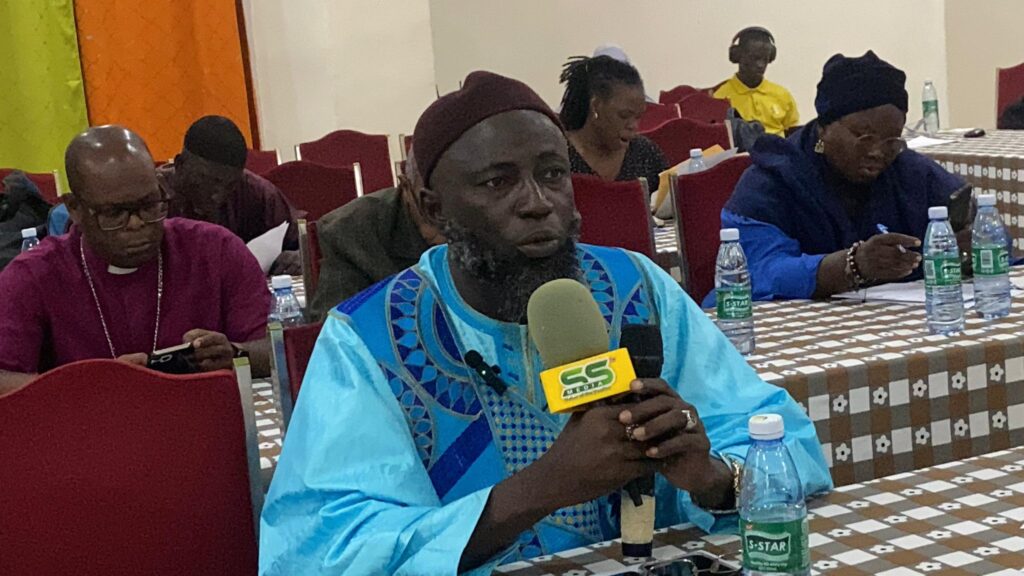The Gambia is under renewed pressure to accelerate the implementation of reforms addressing religious freedom violations committed during the rule of former President Yahya Jammeh, amid growing concern that delays could undermine trust in the transitional justice process.
The appeal was made at an event organised by WAVE in partnership with the Ministry of Justice focused on the role of faith-based organisations in promoting peace and reconciliation.
The gathering hosted at Baobab hotel brought together diverse faith actors to reflect on the role of religious tolerance in sustaining peace and national cohesion.

According to Emmanuel Joof of the NHRC, the Truth, Reconciliation and Reparations Commission (TRRC) concluded that Jammeh systematically manipulated religion to consolidate power, persecuting Ahmadiyya Muslims, Christians, Shia Muslims, and members of the Ndical sect.
In its White Paper, government accepted 263 of the TRRC’s 265 recommendations, including prosecuting Jammeh, ensuring the separation of state and religion, reinstating exiled sect members and returning their properties, reforming the Supreme Islamic Council, and barring future presidents from holding religious posts. It also pledged to introduce civic education promoting tolerance.
However, progress has been limited. The National Human Rights Commission reports that only 16 recommendations have been completed, while 192 remain ongoing and 55 are yet to start.

Victims and rights advocates warn that these delays risk fuelling extremism and weakening public confidence in the reform agenda.
Despite the setbacks, the NHRC remain optimistic, pointing to The Gambia’s deep tradition of interfaith harmony, the growing influence of faith-based organisations, and the recent launch of a National Interfaith Committee.
David Gomez, director of governance, deputising for minister of land said: “Peace is not a destination but a continuous journey”.
Mr Gomez urged Muslims, Christians and traditional leaders to remain pillars of dialogue, forgiveness and compassion.
He further stressed that the responsibility for peace does not rest solely on religious actors, but must be shared by policymakers and state institutions.
Gomez also placed The Gambia’s situation within a broader global context, citing ongoing conflicts in Palestine, Ukraine and South Sudan as reminders of how fragile stability can be.
“In The Gambia, we are blessed with peace, and it is our political responsibility to nurture, guide and sustain it,” Gomez stated.
He reaffirmed government’s commitment to ensuring that future generations inherit a nation defined by tolerance, social justice and unity.
“This small, tiny but peaceful Gambia, must remain a beacon of peace.”
“Religious tolerance is about reconciliation and healing, and ensuring every Gambian can practice their faith in peace,” a participant buttress during a roundtable discussion.
Source: The Standard Newspaper


